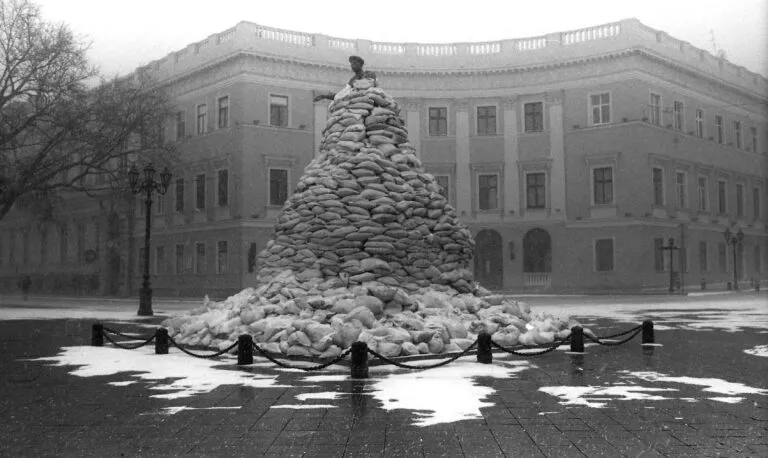My phone went off with a loud siren. The voice of Mark Hamill – yes, of Luke Skywalker fame – spoke sternly: ‘Attention! Air raid alert! Proceed to the nearest shelter. Don’t be careless. Your overconfidence is your weakness.’ I hastily moved to mute it and apologised. A large table full of Ukrainian men grinned back at me. ‘Now we can tell who is not local,’ one of them joked. We continued eating our pizza and talking.
I was in Odesa, a port city on the Black Sea in southern Ukraine - one of two other cities I visited this past month. Every day and night brought reminders of war, as Ukraine continues to defend itself against its Russian invader almost three years into a three day fight. In Odesa, my bedtime soundtrack was the mournful cry of air raid sirens, the infernal buzzing of Russian drones, the roar of explosions, and the reassuring rat-a-tat-tat of air defence guns. This is the daily lived reality of the 38 million people who still live in Ukraine, most of whom meet the threat with a weary but collective shrug and carry on with whatever they need to do.
In the case of the ten men eating pizza around a table in a rented space after a church service in Odesa, ‘whatever they need to do’ is church planting. A March 2024 summit in Kyiv outlined a vision by Ukrainian Baptists to plant 1,000 new churches across the nation by 2036. The objective is simply to reach more people with the good news of Jesus Christ and ensure that they are gathered locally with other believers to walk together as Christ’s disciples.
 letter from Ukraine
letter from Ukraine








Reflecting on betrayal: Ukrainians mark three years of war
On 24 February 2025, thousands of Ukrainians and their families and friends crowded into London’s Trafalgar Square for an evening …